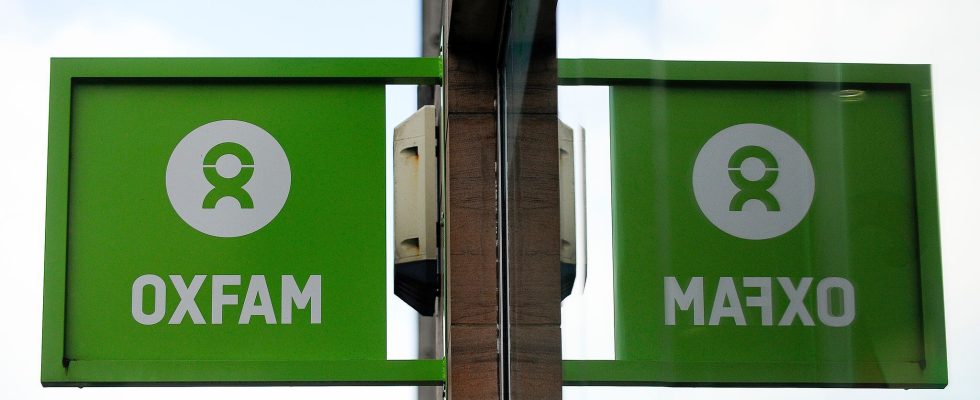Haro on the donkey, second. After the hated billionaires, the French branch of the NGO Oxfam attacked last week the voracious bosses, and their “indecent remuneration”. Cécile Duflot, its managing director, sounded the charge: a maximum salary for CEOs must be imposed by law. In the administered universe of which François Hollande’s former minister dreams, a leader should not earn more than 20 times the median salary of his company. The controversial economist Gaël Giraud and the professor of philosophy Cécile Renouard had pleaded, in the past, for a factor of 12. The firm Proxinvest, which advises investors during votes at general meetings, recommends a factor of 100. Place your bets! And too bad if the law sweeps away this house of cards.
Oxfam, which does not say a word about it in its report, knows it only too well: freedom of enterprise and freedom of contract are protected by article 4 of the Declaration of the Rights of Man and of the Citizen. Under the terms of extensive case law, the Constitutional Council has recognized for twenty years that companies have the right to hire whoever they want. To dismiss to safeguard its competitiveness. Not to reveal, country by country, its economic and fiscal indicators. Or close a factory. “The legislator cannot replace the company to say what is good for it and how it should go about achieving its social purpose”, summarized, in an enlightening text published in 2015, the professor of public law and columnist for L’Express Denys de Béchillon.
France is more egalitarian than Germany, Italy or Spain
Entrepreneurial freedom is neither general nor absolute, retort its critics: it can disappear behind the general interest. Certainly. But it is hard to see how the salary cap for bosses, set by a simplistic and constitutionally flawed law, disregarding the hazards inherent in the conduct of business and the dialogue between social partners, management, board of directors and shareholders, could improve the fate of the community as a whole? “With 500,000 euros a year, we live,” quips Cécile Duflot. Incidentally, we also pay less social security contributions and taxes than if we earned more… However, it is thanks to these high compulsory deductions that “the extent of redistribution in France in 2021 is higher than the European average and that of most major European countries”, recently calculated François Ecalle, on the excellent Fipeco site. And the former member of the High Council of Public Finances concludes: France, overall, is a little more egalitarian than Germany, Italy and Spain, and a little less than Poland, Sweden or the The Netherlands. Not really enough to cry wolf…
In addition to its fragility in law, the bill brought in abstracto by the former ecologist deputy also fishes on another aspect: its de facto ineffectiveness. Bill Clinton knows something about it. In 1993, the newly elected President of the United States wanted to curb the salaries of the big names on Wall Street. While listed companies could deduct from their taxes the entire fixed salary paid to their bosses, he changed the regulations to limit the threshold for this deductibility to $1 million. Beyond, he thought, the shareholders would look twice since the tax advantage fell. Quite the opposite happened: remuneration exploded in the following years, under the effect of bonuses, variable parts and other stock options not affected by the text. With the market for top CEOs globalized and hell paved with good intentions, the contagion then spread to Europe. All that for a modest section of the US tax code.
parades already authorized
The lesson of this story should inspire Oxfam: in an open economy – and we should rejoice – as France is today, wage capping would soon lead to various parades, already authorized. Let’s imagine for a moment that this second Duflot law, after that on rental investment in real estate in tense areas, sees the light of day, making its inspiration definitively go down in history. What would happen in the staffs of the CAC 40? First option: pay the boss, in addition to this new legal ceiling, under his mandates outside France. Nothing fancy, this is the case at Schneider Electric, where Jean-Pascal Tricoire only received 30% of his package in 2022 (fixed, variable and shares) for his CEO missions in Rueil-Malmaison, the balance allocated to him for his duties in Asia and the United States. Second option: register the company abroad, by moving its headquarters. Complicated ? Stellantis, Airbus or STMicroelectronics are European companies under Dutch law, and Eurofins Scientific under Luxembourg law.
No, definitely, this damn freedom to create, to move, to settle, which is the bedrock of the European Union and the prosperity of its businesses, does not fit into Oxfam’s boxes. It would be necessary however of nothing: to change the constitution, and Europe. Simple, we tell you.
